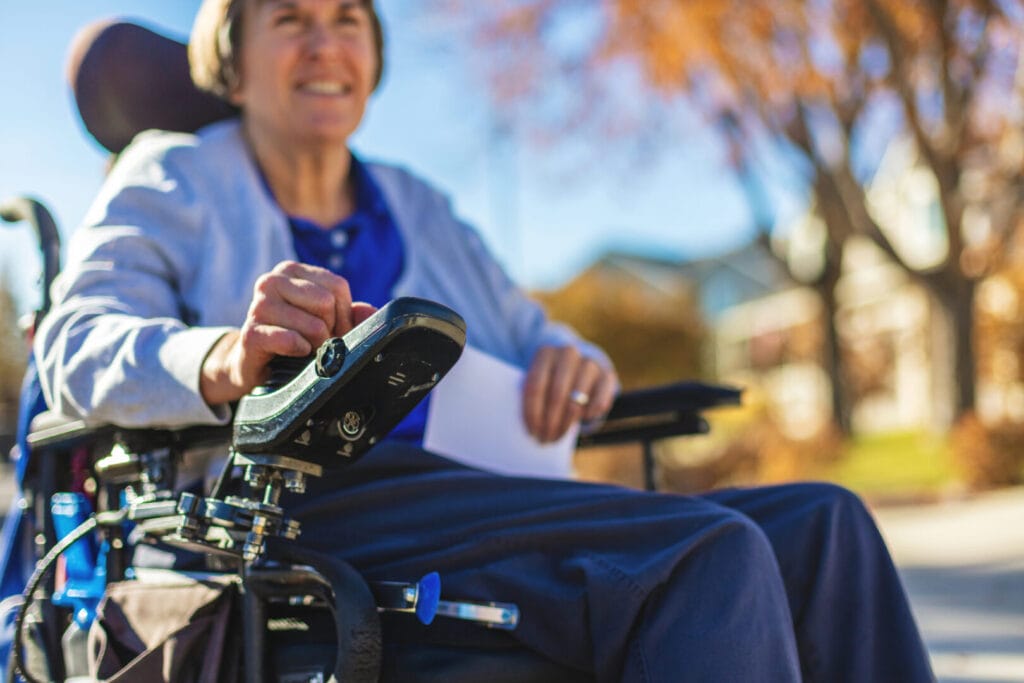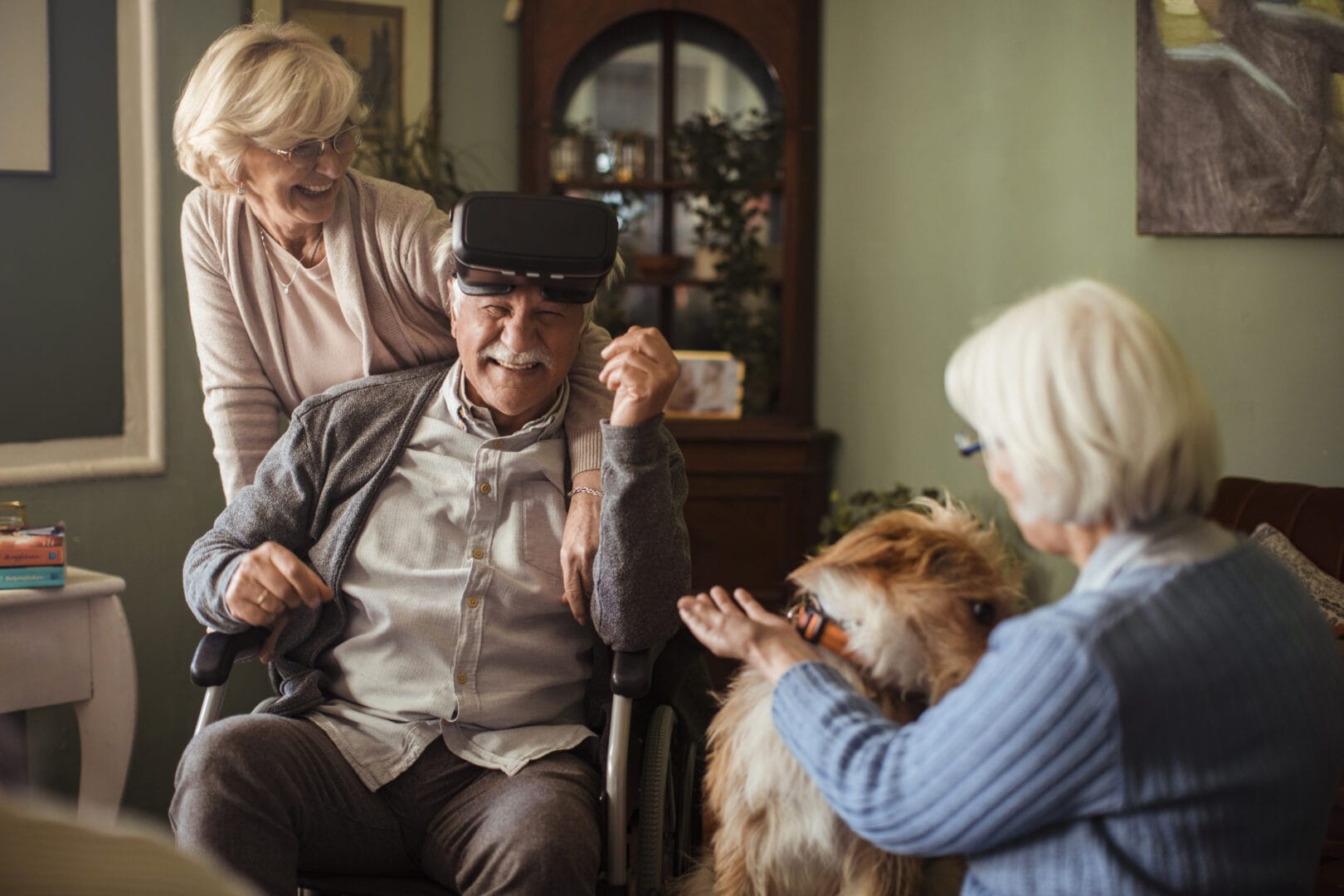In the 21st century, societies worldwide are experiencing a profound demographic shift marked by a rapidly aging population. This transformation underscores an immediate and expanding demand for inventive senior care solutions. As traditional models of elder care undergo scrutiny, technological innovations emerge, holding the potential to revolutionize our approach to caring for the elderly. Welcome to 'The Future of Aging,' where groundbreaking solutions reshape how we meet the evolving needs of our aging global community.
Artificial Intelligence (AI) and robotics stand at the forefront of transforming the landscape of senior care. More than just technological upgrades, these innovations represent a paradigm shift in our understanding of elderly care. The integration of AI and robotics is not merely about adopting cutting-edge technologies; it is about redefining the very essence of how we engage with the evolving needs of our elderly population.
From health monitoring to assisted living, cognitive support, and social interaction, this article aims to unravel the transformative possibilities that AI and robotics bring to the realm of senior care, promising a future where aging is met with unprecedented support and dignity.
- AI in Senior Health Monitoring
- Robotics in Assisted Living
- Ethical Considerations and Privacy Concerns
- Implementation Challenges and Solutions
- Future Trends and Possibilities
AI in Senior Health Monitoring
The realm of senior health monitoring is experiencing a revolutionary overhaul with the integration of Artificial Intelligence (AI). AI applications in health monitoring extend beyond traditional methods, offering continuous, real-time insights into the well-being of seniors. These applications not only detect existing health issues but also have the potential to predict and prevent future complications.
Here are some specific examples of how AI is being used in senior health monitoring:
- Fall detection and prevention: AI algorithms can analyze data from wearable devices to detect signs of imminent falls, such as changes in gait or posture, and alert caregivers or trigger fall prevention mechanisms.
- Chronic disease management: AI models can analyze data from blood pressure monitors, glucose monitors, and other devices to track trends, predict potential complications, and suggest personalized lifestyle or medication adjustments.
- Cognitive health assessment: AI-based cognitive tests can be used to monitor changes in memory, attention, and other cognitive functions, allowing for early detection of potential cognitive decline.
- Mental health monitoring: AI algorithms can analyze language patterns in conversations, social media interactions, or even voice recordings to detect signs of depression, anxiety, or other mental health concerns.

- Medication adherence monitoring: AI-powered systems can track medication usage and remind seniors to take their medications as prescribed, improving medication adherence and reducing the risk of adverse events.
- Activity and sleep monitoring: AI algorithms can analyze data from wearable devices to track activity levels, sleep patterns, and identify potential disruptions in daily routines, providing insights into overall health and well-being.
- Personalized healthcare recommendations: AI can analyze individual health data, preferences, and lifestyle factors to provide personalized healthcare recommendations, such as exercise plans, nutrition guidelines, and preventive care schedules.
- Remote patient monitoring: AI-powered systems can monitor seniors' health remotely, enabling early detection of health issues, reducing hospitalizations, and improving overall healthcare outcomes.
- Virtual assistants for seniors: AI-powered virtual assistants can provide seniors with companionship, reminders, and assistance with daily tasks, promoting independence and reducing social isolation.
- AI-powered chatbots for health education: AI chatbots can provide seniors with personalized health information, answer questions, and address concerns, promoting informed decision-making and self-management of health conditions.
These are just a few examples of the many ways AI is transforming senior health monitoring. As AI technology continues to develop, we can expect even more innovative applications that will enhance the lives of older adults and improve their overall health and well-being.
Robotics in Assisted Living
The integration of robotics in assisted living is ushering in a new era of personalized support for seniors. Robotic companions and assistants are designed to provide not just physical assistance but also emotional support and companionship. These innovative technologies aim to enhance the overall quality of life for seniors by addressing both their practical and emotional needs.
Robotics has the potential to play a significant role in assisted living, providing seniors with a range of benefits that can enhance their independence, safety, and quality of life. Here are some specific examples of how robotics is being used in assisted living:
- Mobility assistance: Robotic assistive devices can help seniors with mobility impairments move around their homes and communities more easily. These devices can include robotic walkers, exoskeletons, and wheelchairs that can be controlled by the user or programmed to follow specific routes.

- Personal care assistance: Robotic assistants can help seniors with activities of daily living (ADLs) such as bathing, dressing, and eating. These robots can provide physical assistance, reminders, and guidance, reducing the burden on caregivers and promoting independence.
- Medication management: Robotic medication dispensers can remind seniors to take their medications as prescribed, help them sort and organize their medications, and track medication adherence. This can improve medication compliance and reduce the risk of medication errors.
- Companionship and social interaction: Robotic companions can provide seniors with companionship, conversation, and social interaction. These robots can respond to questions, play games, and even provide emotional support, reducing loneliness and isolation.
- Environmental monitoring and safety: Robotic systems can monitor seniors' homes for potential hazards, such as gas leaks or falls, and alert caregivers or emergency services. These systems can also provide seniors with reminders about safety precautions and help them navigate their homes safely.
- Cognitive stimulation and rehabilitation: Robotic games and cognitive training programs can help seniors maintain and improve their cognitive abilities. These interactive activities can stimulate memory, attention, and problem-solving skills, reducing the risk of cognitive decline.
- Remote monitoring and telepresence: Robotic telepresence systems allow caregivers to remotely monitor seniors' activities, provide support, and interact with them face-to-face. This can be particularly helpful for seniors who live alone or in remote locations.

- Personalized care and rehabilitation: AI-powered robots can analyze individual needs and preferences to provide personalized care and rehabilitation plans. This tailored approach can optimize the effectiveness of robotic interventions and improve overall outcomes.
- Fall prevention and monitoring: Robotic systems can monitor seniors' gait, posture, and balance to identify potential fall risks and alert caregivers or trigger fall prevention mechanisms. This can help reduce the incidence of falls and their associated injuries.
- Emotional support and mental health monitoring: Robotic companions can provide emotional support, detect signs of depression or anxiety, and encourage seniors to engage in activities that promote mental well-being. This can help improve the mental health and quality of life for seniors.
These examples illustrate the diverse and promising applications of robotics in assisted living. As robotic technology continues to advance, we can expect even more innovative solutions that will revolutionize senior care and empower older adults to live more independent, fulfilling, and healthy lives.
Ethical Considerations and Privacy Concerns
As artificial intelligence (AI) and robotics increasingly integrate into senior care, a host of ethical considerations emerges. The convergence of technology and human welfare prompts a profound examination of potential dilemmas arising from AI-driven decision-making, its impact on human dignity, and the ethical responsibilities inherent in improving the lives of seniors. Navigating this transformative landscape requires finding a delicate equilibrium between technological progress and the ethical foundation of caregiving.
The digitization of healthcare, coupled with AI and robotics, introduces concerns about the privacy and security of sensitive health information, making the safeguarding of data generated by AI-driven systems paramount.
While innovation in AI and robotics holds promise for enhancing well-being in senior care, the recognition of the profound responsibility that accompanies this power becomes essential.
Implementation Challenges and Solutions
Despite the promising future of AI and robotics in senior care, their implementation is not without challenges. One major hurdle is the potential resistance or skepticism among seniors and caregivers toward embracing these technologies. To address this, comprehensive education and training programs can be implemented to familiarize both seniors and caregivers with the benefits and functionalities of AI and robotics in caregiving.
Additionally, there may be concerns related to the cost of implementing such technologies. Striking a balance between affordability and advanced functionalities will be crucial, possibly through government initiatives, subsidies, or partnerships with technology providers.
Another challenge lies in ensuring the ethical and responsible use of AI in senior care. Establishing robust ethical guidelines, privacy safeguards, and regulatory frameworks will be essential to address concerns related to data security and protection of sensitive health information.
Moreover, fostering collaboration among researchers, technology developers, healthcare professionals, and policymakers can help create a cohesive approach to navigating the implementation challenges and ensuring the successful integration of AI and robotics in senior care.
Future Trends and Possibilities
Emerging trends indicate a shift toward more personalized and responsive technologies that cater to the unique needs of elderly individuals. Innovations in AI-driven companionship, health monitoring, and assistive robotics are anticipated to revolutionize the caregiving experience, enhancing both the quality of life for seniors and the efficiency of care delivery.
As these technologies continue to advance, the future holds exciting possibilities for creating a more compassionate, efficient, and tailored approach to senior care, ultimately transforming the aging experience for the better.
Conclusion: The Future of Aging
In the dynamic landscape of an aging global population, the integration of artificial intelligence (AI) and robotics emerges as a transformative force in senior care. These technologies promise a paradigm shift, going beyond mere upgrades to redefine how we address the needs of the elderly. AI's real-time applications in health monitoring and robotics in assisted living offer personalized solutions, yet ethical considerations and implementation challenges require careful attention.
As the future unfolds, exciting possibilities lie in the development of more responsive technologies, marking a shift towards a compassionate, efficient, and tailored approach to senior care. Overcoming challenges through education and collaboration will be essential to realizing this vision, where aging is met with unprecedented support and dignity.





